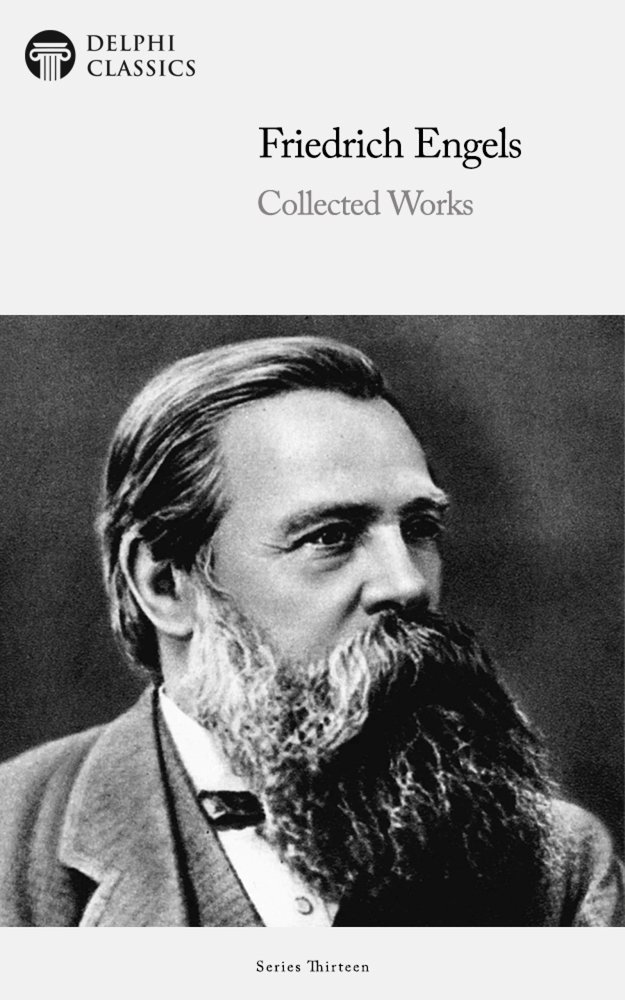The German socialist Friedrich Engels first developed an interest in the philosophy of G. W. F. Hegel, prior to forming a permanent partnership with Karl Marx to promote the socialist movement. After persuading the second Communist Congress to adopt their views, the two friends drafted the Communist Manifesto´ of 1848. After Marx´s death in 1883, Engels was the foremost authority on Marx and Marxism. He produced wide-ranging works of his own, including philosophical writings on materialism, idealism and dialectics. His important work helped supply Marxism with an ontological and metaphysical foundation. This eBook presents Engels´ collected works, with numerous illustrations, rare texts, informative introductions and the usual Delphi bonus material. (Version 1)
* Beautifully illustrated with images relating to Engels´ life and works
* Concise introductions to the major texts
* All of the major treatises, with individual contents tables
* Features rare works appearing for the first time in digital publishing
* Images of how the books were first published, giving your eReader a taste of the original texts
* Easily locate the texts you want to read
* Features Karl Kautsky´s early biography - discover Engels´ incredible life
* Ordering of texts into chronological order and genres
CONTENTS:
The Works
The Condition of the Working Class in England (1845)
The Holy Family (1845)
The German Ideology (1845)
The Anniversary of the Polish Revolution of 1830 (1847)
Preface to On the Question of Free Trade´ (1848)
The Communist Manifesto (1848)
Address of the Central Committee to the Communist League (1850)
England´s 17th Century Revolution (1850)
The Peasants´ War in Germany (1850)
Revolution and Counter-Revolution (1852)
The Heroes of the Exile! (1852)
The Real Issue in Turkey (1853)
On Afghanistan (1857)
Mountain Warfare in the Past and Present (1857)
Po and Rhine (1859)
The Prussian Military Question and the German Workers´ Party (1865)
What Have the Working Classes to Do with Poland? (1866)
Synopsis of Marx´s Das Kapital´ (1868)
Fictitious Splits in the International (1872)
La Liberté Speech (1872)
On Authority (1872)
The Housing Question (1872)
The Bakuninists at Work (1873)
On Social Relations in Russia (1874)
The Program of the Blanquist Fugitives from the Paris Commune (1874)
For Poland (1875)
Life of Wilhelm Wolff (1876)
The Part Played by Labour in the Transition from Ape to Man (1876)
Karl Marx (1877)
Anti-Dühring (1877)
Socialism: Utopian and Scientific (1880)
Bruno Bauer and Early Christianity (1882)
Engels´ Speech at the Grave of Karl Marx (1883)
Dialectics of Nature (1883)
The Origin of the Family, Private Property and the State (1885)
On The History of the Communist League (1885)
Feuerbach (1886)
The Mark (1892)
The Peasant Question in France and Germany (1894)
The Biography
Frederick Engels: His Life, His Work and His Writings (1899) by Karl Kautsky


